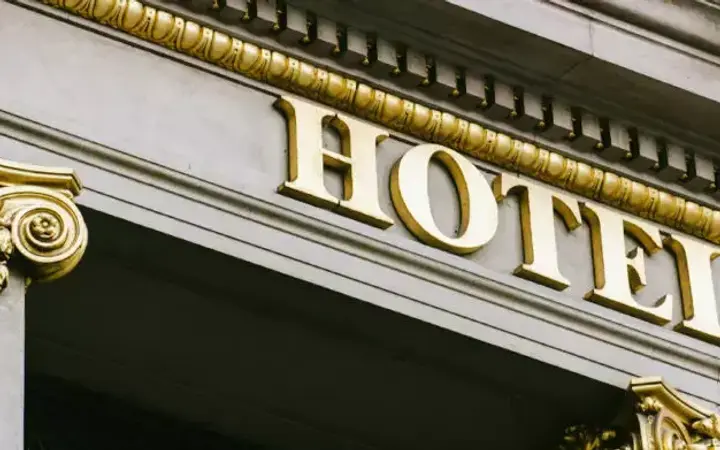Luxury hospitality trade marks — why recording ‘evidence of use’ is essential to maintain EU rights
Gareth Price

Many of the world’s most iconic luxury hotels — think Claridge’s, The Savoy, The Ritz and The Dorchester — call London home. What makes these properties so special is that each is truly unique — you can’t visit or stay at them anywhere other than in London. This means that their names are immensely valuable brands that must be protected through trade mark registration. One of the guiding principles on which trade mark law is built is that owners must make use of their trade mark — otherwise, their rights become vulnerable to cancellation on the grounds of non-use.
Since London isn’t the only location for the world’s most elegant luxury hotels, many owners of properties based outside the EU still need to protect their trade marks in the EU for promotional purposes. A recent decision by the General Court of the European Union assessed if the promotion of such properties amounts to ‘genuine use’ for the purpose of maintaining an EU Trade Mark registration.
Here, luxury brand trade mark specialist Gareth Price explores what this means for hotel owners.
The ‘Standard’ case — a brief background
In July 2011, the predecessor of Standard International Management LLC (SIM) registered their trade mark in the European Union.
SIM operated a chain of boutique hotels — predominantly based in the US — under this trade mark.
The registration covered a wide range of goods and services including “Parking valet services” in Class 39; “Providing meeting/convention room facilities for educational conventions” in Class 41; “Hotel, restaurant, bar, cafe, cocktail lounge services; providing banquet and social function facilities for special occasions; catering services; personal valet services; providing meeting/convention room facilities for other type conventions” in Class 43; and “Barber shop/beauty salon services” in Class 44.
In October 2018, Asia Standard Management Services Ltd filed an application for revocation of the registered trade mark for all goods and services on the grounds of five years of non-use. In the first instance, the EUIPO revoked the registration. A subsequent appeal by SIM was dismissed by the EUIPO’s Fifth Board of Appeal.
In dismissing the appeal, the Fifth Board of Appeal found that the registration had not been put to genuine use in the EU, as the hotel and its ancillary services were not provided in the EU. This was despite SIM filing evidence that referred to advertisements and promotional campaigns in the EU; reservations and related invoices being made directly by customers and travel agencies in the EU; and press materials produced in the EU.
This evidence was disregarded, with the Fifth Board of Appeal concluding that the nationality or geographical origin of the customers was irrelevant — as was the fact that the advertisements and offers of service were intended for consumers in the European Union — since use had not been proven in the EU during the relevant period for any of the goods or services for which the mark had been registered.
SIM filed an action for annulment with the General Court of the European Union, which issued decision T‑768/20 on 13 July 2022.
Proving genuine use in the EU
The General Court found that the Board of Appeal was wrong to find that the registration hadn’t been put to genuine use in the EU because SIM’s hotels and ancillary services were provided in the US. The Board of Appeal had failed to recognise the distinction between the place where the services are provided and the place of use of the mark. Only the latter is relevant to examination of the genuine use of an EU trade mark.
In this regard, the General Court considered that a trade mark registration can prevent acts of use by a third party, which include using a sign on business papers or in advertising. It follows that evidence of use of the trade mark on business papers or in advertising can be taken into account when assessing if there has been genuine use of an EU trade mark, even where the services being advertised are provided outside of the EU.
As SIM had filed evidence of advertising in the EU, alongside offers for sale of its hotel services to customers located in the EU, the General Court ruled that there had been genuine use of the registration and annulled the Board of Appeal’s decision.
How to maintain evidence of use
This decision is a reminder of the importance of maintaining detailed records of advertising campaigns and offers for sale made to customers, as such evidence may be needed for the purpose of maintaining EU Trade Marks. While the evidence must demonstrate use in a substantial part of the EU, the services being advertised or offered for sale don’t need to be provided in the EU.
This decision confirms that in assessing the genuine use of an EU trade mark, the location of the services that are supplied doesn’t determine if the acts of use of the trade mark are provided in the EU. For the owners of hotels located outside of the EU, it’s essential to keep detailed records of advertising campaigns carried out in the EU — such as copies of advertisements, reach and circulation figures and invoices relating to the campaigns. Where sales are achieved — either directly or via travel agencies — records of guest details and invoices should be retained. In addition, providing reports from Google Analytics that show the number of web users located in the EU visiting your website (and any EU-specific booking portals) will add further weight, should you need to defend a challenge to your trade mark.
If you’re looking to protecting your luxury brand anywhere in the world, talk to us for a free initial chat about your needs and how we can assist. Gareth advises many luxury hotels, restaurants and hospitality businesses on how to protect their brands and trade marks, which has given him a unique perspective on best practice.






